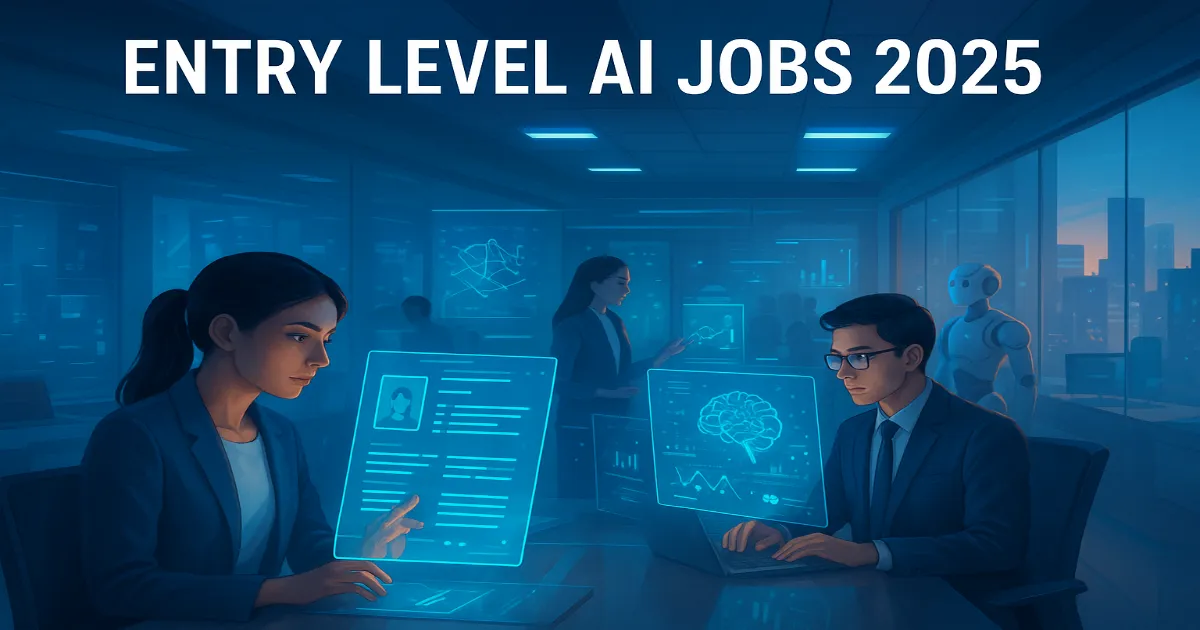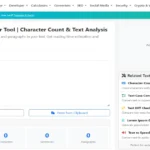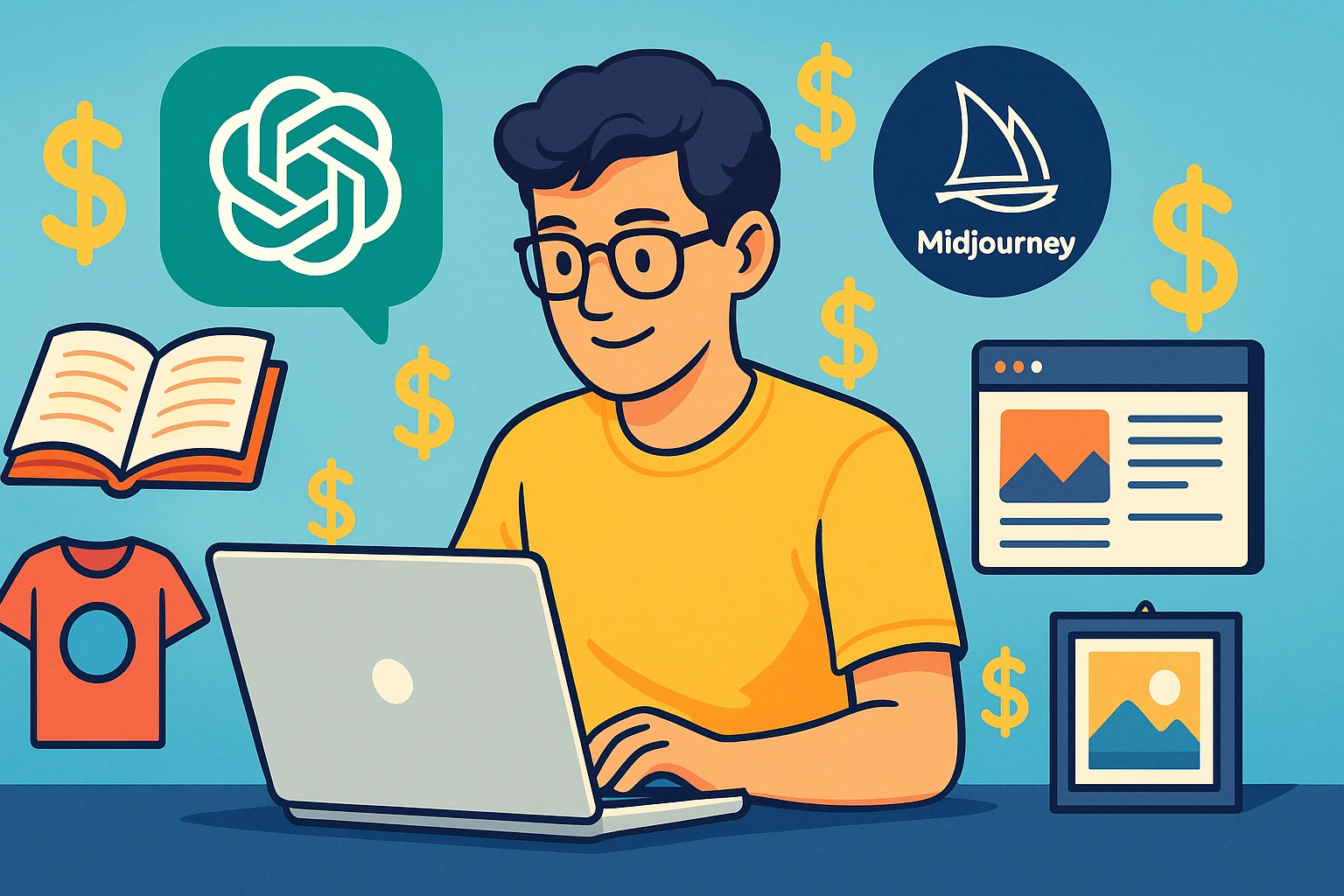Why This Guide Matters
Entry level AI jobs 2025 are shaping the future of tech careers for students, freshers, and professionals looking to switch fields. With AI transforming every industry, the demand for skilled beginners is skyrocketing, making this the perfect time to launch your AI career. The artificial intelligence job market experienced significant growth in 2025, with entry-level AI positions increasing by 74% compared to 2024. Companies across industries are desperately seeking AI talent, creating unprecedented opportunities for beginners to break into this lucrative field.
Unlike traditional tech roles that require years of experience, many AI positions are specifically designed for newcomers who have a solid understanding of modern AI tools and methodologies. This complete roadmap will guide you from zero experience to landing your first AI job in 6-12 months.
Current AI Job Market Overview
Market Growth Statistics
The AI job market in 2025 presents remarkable opportunities:
- Salary Range : Entry-level AI jobs in India range from ₹6L to ₹15L annually
- Global Demand : Over 2.3 million AI jobs worldwide, with 40% requiring minimal experience
- Industry Adoption : 85% of companies plan to increase AI hiring in 2025
- Remote Opportunities : 67% of AI jobs offer remote or hybrid work options
Industries Hiring AI Beginners
Technology & Software (35% of positions)
- Product companies building AI features
- AI-first startups and scale-ups
- Traditional tech companies are integrating AI
Finance & Banking (22% of positions)
- Fraud detection and risk assessment
- Algorithmic trading and investment analysis
- Customer service automation
Healthcare & Life Sciences (18% of positions)
- Medical image analysis
- Drug discovery and research
- Patient data analysis
E-commerce & Retail (12% of positions)
- Recommendation systems
- Inventory optimization
- Customer behavior analysis
Other Industries (13% of positions)
- Education, manufacturing, logistics, and consulting
Top Entry Level AI Jobs 2025
1. AI/ML Engineering Associate
Average Salary : ₹8L – ₹12L annually
Key Responsibilities :
- Implement pre-trained models
- Data preprocessing and cleaning
- Model testing and validation
- API integration for AI features
Skills Required :
- Python programming
- Basic machine learning concepts
- SQL and database management
- Version control (Git)
2. Data Analyst with AI Focus
Average Salary : ₹6L – ₹10L annually
Key Responsibilities :
- Analyze datasets for AI model training
- Create data visualizations and reports
- Identify patterns and insights
- Support data-driven decision making
Skills Required :
- Excel and SQL proficiency
- Python or R for analysis
- Data visualization tools (Tableau, Power BI)
- Statistical analysis
3. AI Content Specialist
Average Salary : ₹5L – ₹9L annually
Key Responsibilities :
- Create training data for AI models
- Write and optimize AI prompts
- Content moderation and quality control
- Documentation and process improvement
Skills Required :
- Strong writing and communication
- Understanding of AI limitations
- Attention to detail
- Basic technical knowledge
4. AI Product Support Specialist
Average Salary : ₹6L – ₹11L annually
Key Responsibilities :
- Customer support for AI products
- Troubleshoot AI tool issues
- Gather user feedback and requirements
- Create user guides and documentation
Skills Required :
- Customer service experience
- Technical aptitude
- Problem-solving skills
- Communication abilities
5. Junior AI Researcher
Average Salary : ₹7L – ₹13L annually
Key Responsibilities :
- Literature review and research
- Experiment design and execution
- Data collection and analysis
- Research paper writing support
Skills Required :
- Research methodology
- Python programming
- Statistical analysis
- Academic writing
6. AI Training Data Coordinator
Average Salary : ₹5L – ₹8L annually
Key Responsibilities :
- Manage data labeling projects
- Quality control for training datasets
- Coordinate with annotation teams
- Data pipeline maintenance
Skills Required :
- Project management
- Data quality assessment
- Basic programming knowledge
- Attention to detail
Essential Skills for AI Beginners
Technical Skills (Must-Have)
Python Programming (Priority: High)
- Data manipulation with Pandas
- Basic algorithms and data structures
- API integration and web scraping
- Understanding of libraries like NumPy and Scikit-learn
SQL and Databases (Priority: High)
- Data querying and manipulation
- Join operations and data aggregation
- Database design basics
- Cloud database platforms (AWS RDS, Google Cloud SQL)
Mathematics and Statistics (Priority: Medium)
- Descriptive and inferential statistics
- Linear algebra basics
- Probability distributions
- Hypothesis testing
Machine Learning Fundamentals (Priority: High)
- Supervised vs unsupervised learning
- Common algorithms (regression, classification, clustering)
- Model evaluation metrics
- Overfitting and underfitting concepts
Tools and Platforms
Essential Tools :
- Jupyter Notebooks for development
- Git for version control
- Google Colab for experimentation
- Docker for containerization basics
AI/ML Platforms :
- Hugging Face for pre-trained models
- TensorFlow or PyTorch basics
- AWS SageMaker or Google Cloud AI Platform
- MLflow for experiment tracking
Soft Skills (Equally Important)
Communication Skills
- Explain technical concepts to non-technical stakeholders
- Write clear documentation and reports
- Present findings and recommendations
- Collaborate effectively with diverse teams
Problem-Solving Approach
- Break down complex problems into manageable parts
- Think critically about data and results
- Adapt to new tools and technologies quickly
- Learn from failures and iterate
Step-by-Step Learning Roadmap
Phase 1: Foundation Building (Months 1-2)
Week 1-2: Python Fundamentals
- Complete Python basics on Codecademy or freeCodeCamp
- Practice daily coding exercises on HackerRank
- Build 2-3 simple projects (calculator, data parser, web scraper)
Week 3-4: Data Manipulation
- Learn Pandas for data handling
- Practice with real datasets from Kaggle
- Master data cleaning and preprocessing techniques
Week 5-6: Statistics and Math
- Khan Academy statistics course
- Linear algebra basics on 3Blue1Brown
- Practice statistical analysis with Python
Week 7-8: SQL Mastery
- Complete SQLBolt or W3Schools SQL tutorial
- Practice on platforms like LeetCode or HackerRank
- Work with real databases using MySQL or PostgreSQL
Phase 2: AI/ML Specialization (Months 3-4)
Week 9-12: Machine Learning Basics
- Andrew Ng’s Machine Learning Course (Coursera)
- Hands-on practice with Scikit-learn
- Complete 3-4 ML projects from scratch
Week 13-16: Deep Learning Introduction
- Deep Learning Specialization basics
- TensorFlow or PyTorch tutorials
- Build neural network projects
Phase 3: Practical Application (Months 5-6)
Week 17-20: Portfolio Development
- Create 5-7 diverse AI projects
- Deploy projects using cloud platforms
- Write detailed documentation and case studies
Week 21-24: Job Preparation
- Optimize LinkedIn profile and resume
- Practice technical interviews
- Apply to entry-level positions
- Network with AI professionals
Salary Expectations
India Market (2025 Data)
| Experience Level | Salary Range (₹L) | Key Factors |
|---|---|---|
| 0-1 years | 6L – 10L | Skills, location, company size |
| 1-2 years | 8L – 15L | Proven projects, certifications |
| 2-3 years | 12L – 20L | Specialized skills, leadership |
Factors Affecting Salary
Location Impact :
- Bangalore/Hyderabad: +20-30% premium
- Mumbai/Delhi: +15-25% premium
- Pune/Chennai: +10-15% premium
- Tier-2 cities: Base salary range
Company Type :
- Big Tech (Google, Microsoft): +40-60% premium
- AI-first startups: +20-40% premium
- Traditional enterprises: Base range
- Service companies: -10-20% discount
Skills Premium :
- MLOps experience: +₹2-4L
- Cloud platform expertise: +₹1-3L
- Domain specialization: +₹2-5L
- Research background: +₹1-3L
How to Land Your First AI Job
Resume Optimization Strategy
Technical Skills Section :
- List programming languages with proficiency levels
- Highlight relevant tools and frameworks
- Include cloud platform experience
- Mention any AI/ML certifications
Project Showcase :
- Describe 4-5 relevant projects with impact metrics
- Include GitHub links and live demos
- Explain the problem, solution, and results
- Highlight business value and technical challenges
Professional Summary :
“Aspiring AI professional with strong Python programming skills and hands-on experience in machine learning projects. Completed 15+ AI projects, including recommendation systems and predictive analytics. Seeking to leverage analytical skills and passion for AI to contribute to innovative solutions.”
Interview Preparation Guide
Technical Interview Topics :
- Python coding challenges (data structures, algorithms)
- SQL queries and database design questions
- Machine learning concepts and algorithms
- Statistics and probability problems
- Project walkthrough and technical discussion
Common Questions and Answers :
“Explain the difference between supervised and unsupervised learning.“
“Supervised learning uses labeled data to train models for prediction tasks like classification and regression. Unsupervised learning finds patterns in unlabeled data through clustering, dimensionality reduction, and association rules.”
“How do you handle overfitting in machine learning models?“
“Overfitting occurs when a model memorizes training data but fails on new data. Solutions include cross-validation, regularization techniques, feature selection, increasing training data, and using simpler models.”
“Walk me through your machine learning project.“
Structure: Problem definition → Data collection → EDA → Feature engineering → Model selection → Evaluation → Deployment → Results and impact
Networking and Community Building
Online Communities :
- Join AI/ML Discord servers and Slack channels
- Participate in Kaggle competitions and discussions
- Contribute to open-source AI projects on GitHub
- Engage with professionals on LinkedIn and Twitter
Offline Networking :
- Attend local AI meetups and conferences
- Join professional organizations (ACM, IEEE)
- Participate in hackathons and coding competitions
- Seek mentorship from experienced professionals
Common Mistakes to Avoid
Learning Phase Mistakes
Mistake 1: Focusing Only on Theory
- Problem : Learning concepts without practical application
- Solution : Build projects while learning each concept
- Impact : Difficulty in interviews and real-world problem-solving
Mistake 2: Ignoring the Business Side
- Problem : Not understanding how AI creates business value
- Solution : Study business cases and ROI calculations
- Impact : Limited career growth and strategic thinking
Mistake 3: Skipping Fundamentals
- Problem : Jumping to advanced topics without strong basics
- Solution : Master Python, statistics, and SQL first
- Impact : Weak foundation leads to interview failures
Job Search Mistakes
Mistake 4: Generic Applications
- Problem : Using the same resume for all applications
- Solution : Customize resume and cover letter for each role
- Impact : Lower response rates and missed opportunities
Mistake 5: Underselling Yourself
- Problem : Not highlighting transferable skills and projects
- Solution : Quantify achievements and emphasize learning ability
- Impact : Lower salary offers and job rejection
Mistake 6: Limiting Job Search Scope
- Problem : Only applying to obvious “AI Engineer” roles
- Solution : Consider data analyst, product, and consulting roles
- Impact : Missing 60% of available opportunities
Frequently Asked Questions
What skills do I need for entry level AI jobs 2025?
The essential skills include Python programming, SQL database querying, basic statistics and mathematics, machine learning fundamentals, and data visualization. Soft skills like communication, problem-solving, and continuous learning are equally important. Most entry-level positions prioritize learning ability over extensive experience.
Which AI jobs don’t require coding?
Several AI roles require minimal coding: AI Content Specialist focuses on creating training data and optimizing prompts; AI Product Manager handles strategy and requirements; AI Sales Specialist sells AI solutions to clients; AI Trainer develops educational content; and AI Ethics Consultant ensures responsible AI implementation. These roles typically offer ₹5L-12L annually.
How long does it take to learn AI?
For entry-level positions, expect 6-12 months of focused learning. This includes 2 months for Python and statistics fundamentals, 2-3 months for machine learning concepts, and 2-3 months building a portfolio. The timeline varies based on your background, daily study time, and learning approach. Prior programming experience can reduce this to 4-6 months.
Can I get an AI job without a technical degree?
Yes, many companies prioritize skills over degrees for entry-level AI positions. Focus on building a strong portfolio with 5-7 projects demonstrating various AI applications. Obtain relevant certifications from Google, Microsoft, or AWS. Develop domain expertise in industries like healthcare or finance. Consider roles like AI Content Specialist or Product Support that value communication skills alongside technical knowledge.
What’s the best way to start learning AI?
Begin with Python programming fundamentals using free resources like Codecademy or freeCodeCamp. Learn data manipulation with Pandas and basic statistics. Take Andrew Ng’s Machine Learning course on Coursera for solid foundations. Practice with real datasets on Kaggle. Build projects immediately after learning each concept. Join AI communities for support and networking.
Are AI jobs secure from automation?
Ironically, AI professionals are among the most secure from AI automation. While AI can assist with coding and analysis, human creativity, strategic thinking, and ethical judgment remain irreplaceable. The field is evolving rapidly, requiring continuous learning and adaptation. Focus on developing meta-skills like learning ability, problem-solving, and communication to remain valuable.
How do I build an AI portfolio without experience?
Start with guided projects from online courses, then modify them significantly. Use public datasets from Kaggle, government sources, or APIs to solve real problems. Contribute to open-source AI projects on GitHub. Participate in Kaggle competitions and hackathons. Create tutorials and blog posts explaining your projects. Deploy projects using free cloud services to demonstrate end-to-end capabilities.
Should I specialize in a specific AI area?
For beginners, start with generalist knowledge across machine learning, data analysis, and AI tools. After 6-12 months, consider specializing based on interests and market demand. High-demand specializations include computer vision, natural language processing, recommendation systems, and AI/ML operations (MLOps). Choose based on your strengths and industry preferences.
Ready to start your AI career journey? The opportunities in 2025 are unprecedented, but they require dedication and strategic learning. Use this roadmap as your guide, stay consistent with daily practice, and don’t hesitate to start building projects from day one. The AI job market rewards practical skills and demonstrated ability over theoretical knowledge alone.
Remember: Every expert was once a beginner. Your journey into AI starts with the first line of code you write today.












